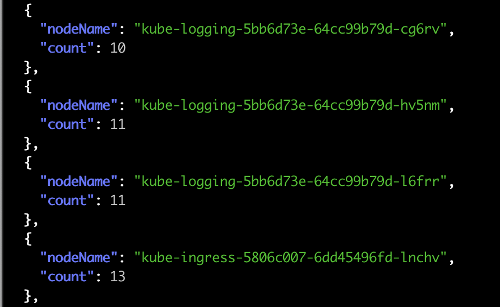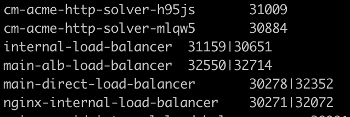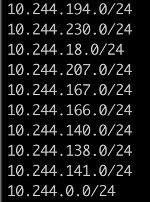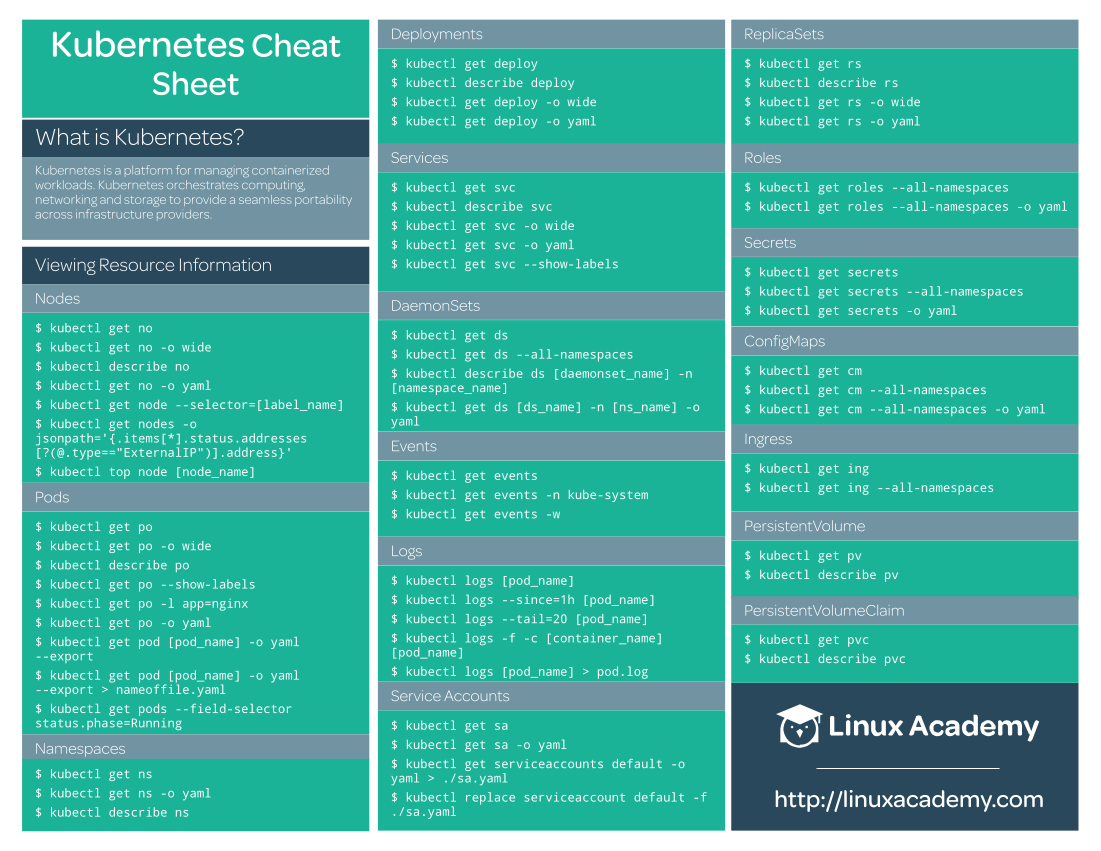
Some teams may turn out to be a daily routine for some readers, but if there are those who will discover new things for themselves, thereby improving their effectiveness, the goal of the article will be achieved.
NB : Some of the commands listed below were compiled by our engineers, while others were found on the Internet. In the latter case, they have been tested and found to be useful.
So let's go!
pod'
- , pod'
--all-namespaces. , —-A( , Kubernetes 1.15). - pod', (..
Running)?
kubectl get pods -A --field-selector=status.phase!=Running | grep -v Complete

,--field-selector(. ). - :
kubectl get no -o json | \ jq -r '.items | sort_by(.status.capacity.memory)[]|[.metadata.name,.status.capacity.memory]| @tsv'

- pod' :
kubectl get po -o json --all-namespaces | \ jq '.items | group_by(.spec.nodeName) | map({"nodeName": .[0].spec.nodeName, "count": length}) | sort_by(.count)'

- , - DaemonSet - . — , - , DaemonSet':
ns=my-namespace pod_template=my-pod kubectl get node | grep -v \"$(kubectl -n ${ns} get pod --all-namespaces -o wide | fgrep ${pod_template} | awk '{print $8}' | xargs -n 1 echo -n "\|" | sed 's/[[:space:]]*//g')\" -
kubectl toppod', :
# cpu kubectl top pods -A | sort --reverse --key 3 --numeric # memory kubectl top pods -A | sort --reverse --key 4 --numeric - pod' — , :
kubectl get pods --sort-by=.status.containerStatuses[0].restartCount

, (. PodStatus ContainerStatus).
- Ingress', pod' . ,
-o wide:
kubectl -n jaeger get svc -o wide NAME TYPE CLUSTER-IP EXTERNAL-IP PORT(S) AGE SELECTOR jaeger-cassandra ClusterIP None <none> 9042/TCP 77d app=cassandracluster,cassandracluster=jaeger-cassandra,cluster=jaeger-cassandra
, , pod'. - pod' limits requests:
kubectl get pods -n my-namespace -o=custom-columns='NAME:spec.containers[*].name,MEMREQ:spec.containers[*].resources.requests.memory,MEMLIM:spec.containers[*].resources.limits.memory,CPUREQ:spec.containers[*].resources.requests.cpu,CPULIM:spec.containers[*].resources.limits.cpu'

-
kubectl run(create,apply,patch) —--dry-run.-o yaml, . :
kubectl run test --image=grafana/grafana --dry-run -o yaml apiVersion: apps/v1 kind: Deployment metadata: creationTimestamp: null labels: run: test name: test spec: replicas: 1 selector: matchLabels: run: test strategy: {} template: metadata: creationTimestamp: null labels: run: test spec: containers: - image: grafana/grafana name: test resources: {} status: {}
, / . - - :
kubectl explain hpa KIND: HorizontalPodAutoscaler VERSION: autoscaling/v1 DESCRIPTION: configuration of a horizontal pod autoscaler. FIELDS: apiVersion <string> APIVersion defines the versioned schema of this representation of an object. Servers should convert recognized schemas to the latest internal value, and may reject unrecognized values. More info: https://git.k8s.io/community/contributors/devel/api-conventions.md#resources kind <string> Kind is a string value representing the REST resource this object represents. Servers may infer this from the endpoint the client submits requests to. Cannot be updated. In CamelCase. More info: https://git.k8s.io/community/contributors/devel/api-conventions.md#types-kinds metadata <Object> Standard object metadata. More info: https://git.k8s.io/community/contributors/devel/api-conventions.md#metadata spec <Object> behaviour of autoscaler. More info: https://git.k8s.io/community/contributors/devel/api-conventions.md#spec-and-status. status <Object> current information about the autoscaler.
!
- IP- :
kubectl get nodes -o json | \ jq -r '.items[].status.addresses[]? | select (.type == "InternalIP") | .address' | \ paste -sd "\n" -

- nodePort, :
kubectl get --all-namespaces svc -o json | \ jq -r '.items[] | [.metadata.name,([.spec.ports[].nodePort | tostring ] | join("|"))]| @tsv'

- , CNI (, Flannel), pod' . pod', :
kubectl get nodes -o jsonpath='{.items[*].spec.podCIDR}' | tr " " "\n"

- pod' c timestamp :
kubectl -n my-namespace logs -f my-pod --timestamps 2020-07-08T14:01:59.581788788Z fail: Microsoft.EntityFrameworkCore.Query[10100]
, ? - , pod' —
--tail:
kubectl -n my-namespace logs -f my-pod --tail=50 - pod':
kubectl -n my-namespace logs -f my-pod --all-containers - pod' label':
kubectl -n my-namespace logs -f -l app=nginx - , , , :
kubectl -n my-namespace logs my-pod --previous
- ?
kubectl get secrets -o json --namespace namespace-old | \ jq '.items[].metadata.namespace = "namespace-new"' | \ kubectl create-f - - :
openssl req -x509 -nodes -days 365 -newkey rsa:2048 -keyout tls.key -out tls.crt -subj "/CN=grafana.mysite.ru/O=MyOrganization" kubectl -n myapp create secret tls selfsecret --key tls.key --cert tls.crt
Instead of a conclusion - a small list of similar materials and collections found on the Internet:
- The official cheatsheet from Kubernetes documentation;
- A short hands-on introduction and a nice 2-page tablet from the Linux Academy to help reduce time for aspiring engineers:

- A very extensive list of commands from Blue Matador, divided into sections;
- A selection of links in the gist to tables with commands, articles on the topic and some commands;
- The Kubernetes-Cheat-Sheet GitHub repository from another enthusiast contains only commands categorized;
- The kubectl-aliases GitHub repository is a paradise for abbreviators.
PS
Read also on our blog:
- « Kubernetes kubectl»;
- « Kubernetes kubectl»;
- « Kubernetes».